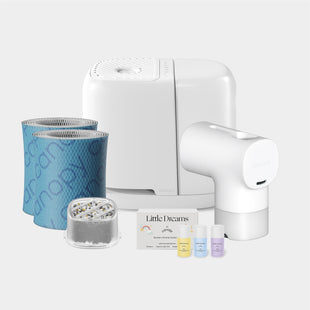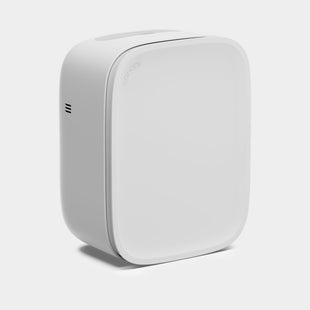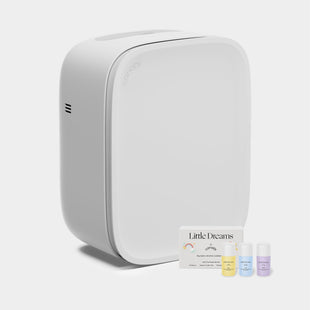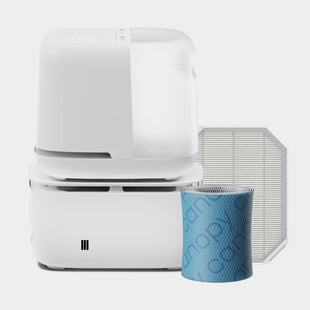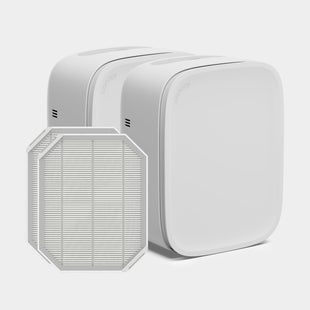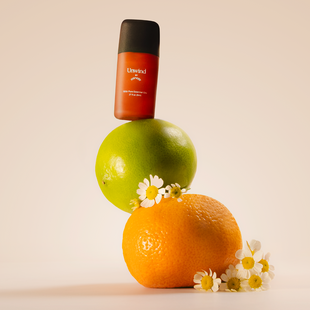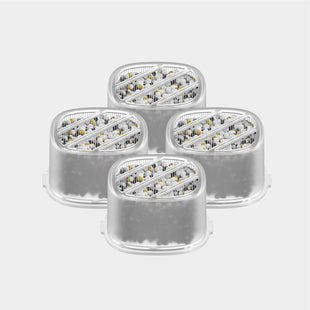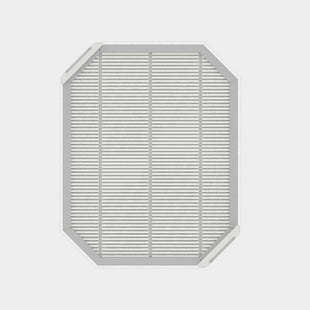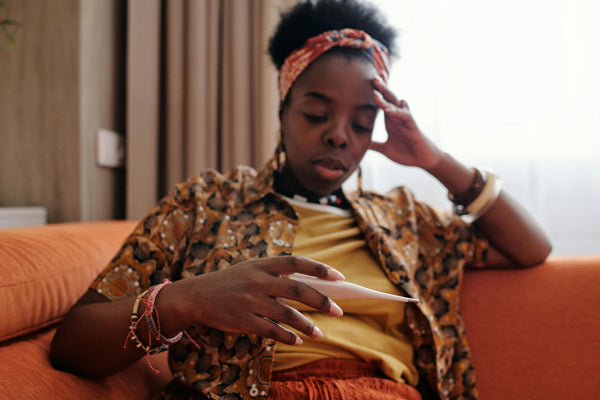This content has been reviewed and updated on October 8, 2024.
Since being declared a global pandemic by the World Health Organization (WHO) in March 2020, COVID-19 has been a factor in the death of over 7 million people. If you haven’t had the virus yourself by now, you probably know many people who have.
Although the availability of vaccines and effective treatments, plus growing immunity and natural mutations within the virus itself, have allowed most people to return to their everyday lives, variations of coronavirus 2019 are still circulating. New strains appear every few months, accompanied by spikes in case counts and hospitalizations.
These days, most people who test positive for COVID-19 have relatively mild cold and flu-like symptoms. However, the congestion, sore throat, cough, and other symptoms can still leave you feeling miserable for a few days. Using a humidifier for COVID-19 can help alleviate your discomfort—and may even help keep you from getting sick in the first place.
What Is Coronavirus?
Coronavirus disease 2019, also known as COVID-19, is the disease caused by the virus severe acute respiratory syndrome coronavirus-2 (SARS-CoV-2). Coronaviruses are a group or family of viruses that can cause the common cold, SARS, or MERS (Middle East Respiratory Syndrome).
Since the pandemic started, COVID-19 has undergone many mutations, most of which are inconsequential. As of fall 2024, the XEC variant is on the rise, which unlike previous variants, doesn’t appear to have the extreme mutations that caused widespread concern in previous years. That’s partly because the XEC variant is similar to the currently dominant KP.3.1.1 variant, which is responsible for at least half of the current COVID-19 cases in the U.S.
This latest variant does not cause any specific or unusual symptoms. For most people, COVID-19 symptoms range from mild to moderate, and may include:
- Fever
- Cough
- Congestion
- Sore throat
- Fatigue
- Chills
- Body Aches
- Gastrointestinal issues
Older populations or adults with pre-consisting conditions typically have more severe symptoms and have a greater risk of hospitalization or death. However, hospitalizations and COVID-19-related deaths have declined significantly since 2020, with less than 10% of people with the illness needing to go to the hospital.
How a Humidifier for COVID-19 Can Help You Feel Better

Even if you aren’t sick enough to go to the hospital, you’re still likely to have a miserable, or at least uncomfortable, few days when you test positive for COVID-19. For most people, rest, plenty of fluids, and over-the-counter medications can help manage your symptoms until you feel better.
However, an estimated 10% to 35% who contract the virus develop what’s referred to as “long COVID,” a condition triggered by the virus that causes COVID-19. The symptoms of long COVID vary and may be persistent or sporadic, but they typically include:
- Extreme fatigue
- Brain fog
- Issues with taste and smell
- Cold and flu-like symptoms, such as cough and headache
- Sleep disruptions
- Digestive issues
Whether your symptoms last for a few days or a few months, talk to your healthcare provider about treatment options. Some people may be able to take prescription medication that shortens the duration of symptoms and lessens their severity. In the case of long COVID, additional therapies may be necessary.
Because COVID-19 is primarily a respiratory virus, a humidifier can help ease certain symptoms, like a hacking cough, sore throat, and stuffy nose. Adding moisture to the air can help reduce inflammation in your airways and thin mucus so you feel less congested, and coughs are more productive and less uncomfortable. Using a humidifier for COVID-19, like the Canopy Bedside or Nursery Humidifier, which uses evaporative technology to hydrate the air, can also make the air more comfortable for sleeping, so you can get plenty of rest and get better faster.
Can a Humidifier Reduce Your Risk of Getting Sick?
Although using a humidifier can help you feel better when you’re sick, there’s also evidence that keeping the relative humidity inside your home on the higher side (closer to 50%) can help reduce the likelihood of viruses that cause COVID-19 and the flu from spreading. According to a 2020 paper published in the Annual Review of Virology by Yale professor Akiko Iwasaki, hydrated air reduces the survivability of airborne pathogens, decreasing the risk of a COVID-19 infection.

When we breathe, we release microscopic droplets into the air. These droplets can contain viruses, and the higher the concentration of droplets in any area, the more likely others are to breathe them in and get sick.
In spaces where the air is dry, respiratory droplets evaporate faster, becoming smaller and lighter. This allows them to float around longer, contaminating the air. When the air contains more moisture, the droplets don’t evaporate and remain relatively heavy. This extra weight prevents them from remaining airborne, so they fall to the ground, where the viral contaminants die sooner.
Iwasaki and his co-researchers also highlighted the effect that humidity has on our immune system’s response to viruses. Chronic dry air weakens the immune response, increasing the likelihood of transmitting viral infections. Cilia, the tiny hairlike structures that line the inside of your airways, struggle to perform their protective duties in dry conditions. Cilia need sufficient moisture to trap foreign particles before they enter your body and cause damage.
The best way to increase the RH levels of your home or living space is to use a humidifier. Canopy’s evaporative humidifiers hydrate the air without mist or water droplets, providing clean and safe moisture. Keep yourself and your kids comfortable with our Bedside Humidifier and Nursery Humidifier, which are designed to treat spaces up to 500 square feet. For results throughout the house, try our Large Room Humidifier and hydrate spaces up to 1,000 square feet.
If you want to maintain ideal relative humidity on the go, our Portable Humidifier provides an ultra-fine cool mist without heavy droplets or steam, so you can hydrate the air wherever you are. It’s the perfect companion for commuting to the office and traveling. The 500mL tank provides up to 11 hours of battery life on low-mode or up to 24 hours plugged in.
How to Use a Humidifier for COVID-19
Whether you’re trying to keep your family healthy by improving indoor air quality or getting over a bout of COVID-19, using a humidifier correctly can make a big difference. Medical experts recommend using cool mist or evaporative humidifiers to prevent the risk of burns from steam or hot devices and only running them until the relative indoor humidity reaches 30% to 50%.
Canopy’s family of humidifiers checks all the boxes for safely hydrating the air. Our Bedside, Nursery, and Large Room Humidifiers use powerful filters to remove contaminants from the water, ensuring clean hydration without bacteria, mold, and other pollutants that can worsen respiratory symptoms. Sensors automatically detect relative humidity, so you don’t need to worry about oversaturating the air.
Because the virus that causes COVID-19 spreads more easily in confined spaces with dry air, the Canopy Portable Humidifier is perfect for travel. The TSA-approved device can hydrate the air around you on a plane or in your office or cubicle at work, helping you stay more comfortable and healthier even when you’re away from home.
You can even use your HSA/FSA savings to purchase a Canopy Humidifier. We’ve partnered with Truemed to allow qualifying customers to use their pre-tax earnings to purchase Canopy products to prevent or alleviate certain conditions. You can save up to 40% on your purchase with this benefit.
Experts predict that COVID-19 will continue to circulate and spike at various times throughout the year. Follow standard precautions (wash your hands, mask up when necessary, and talk with your healthcare provider about getting vaccinated) and consider investing in a humidifier to keep the virus at bay and relieve your symptoms if you get sick.









